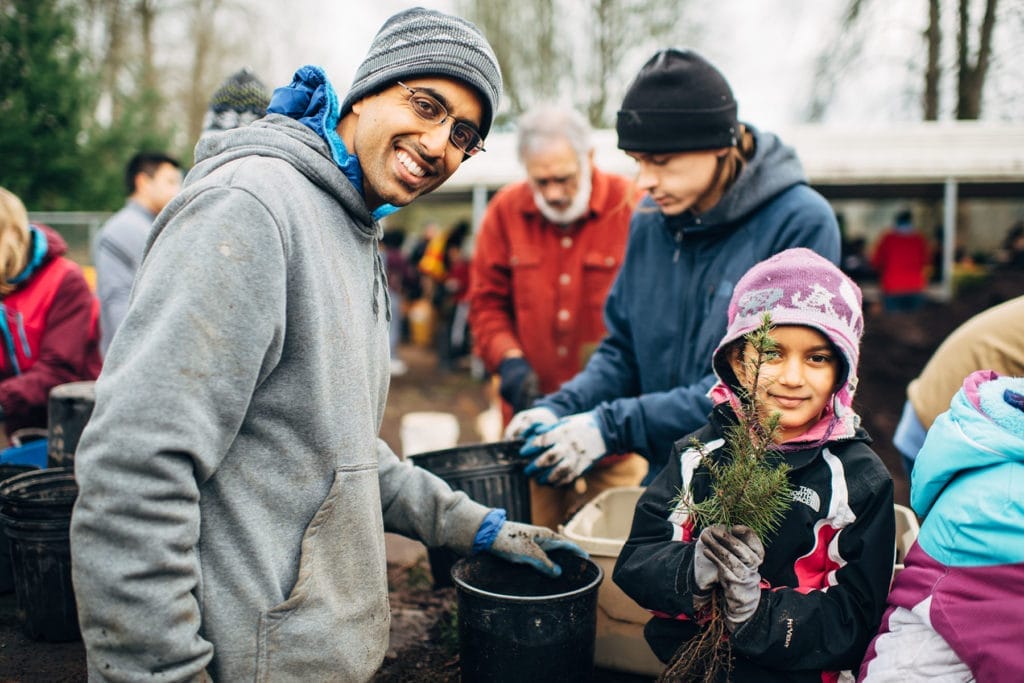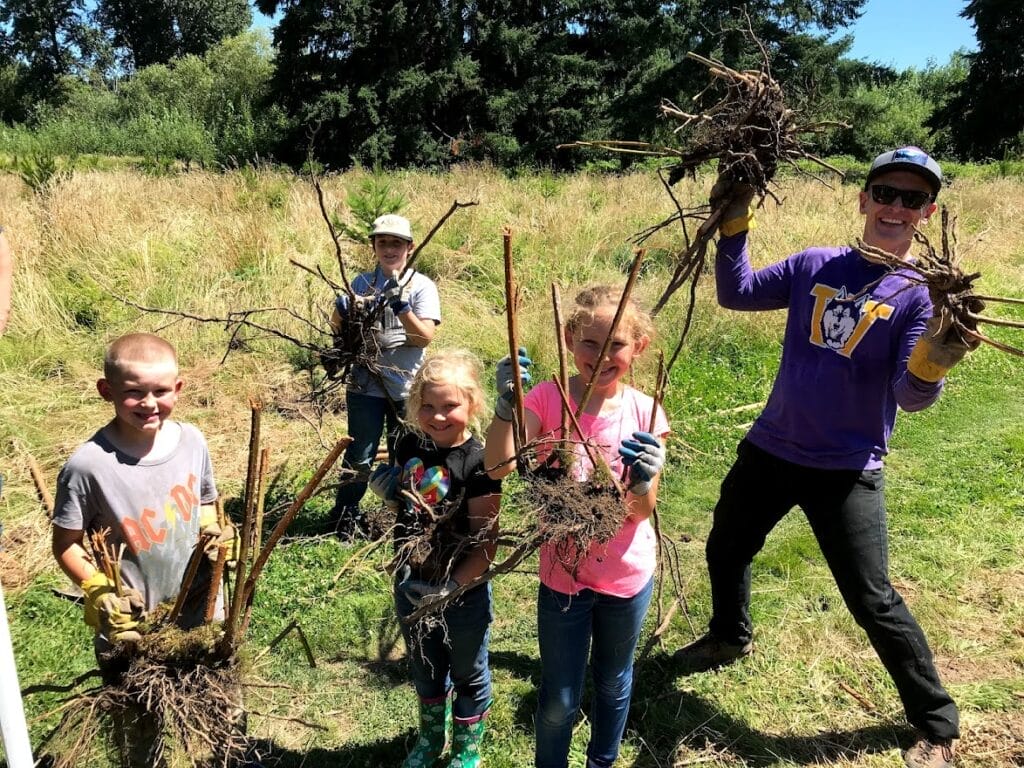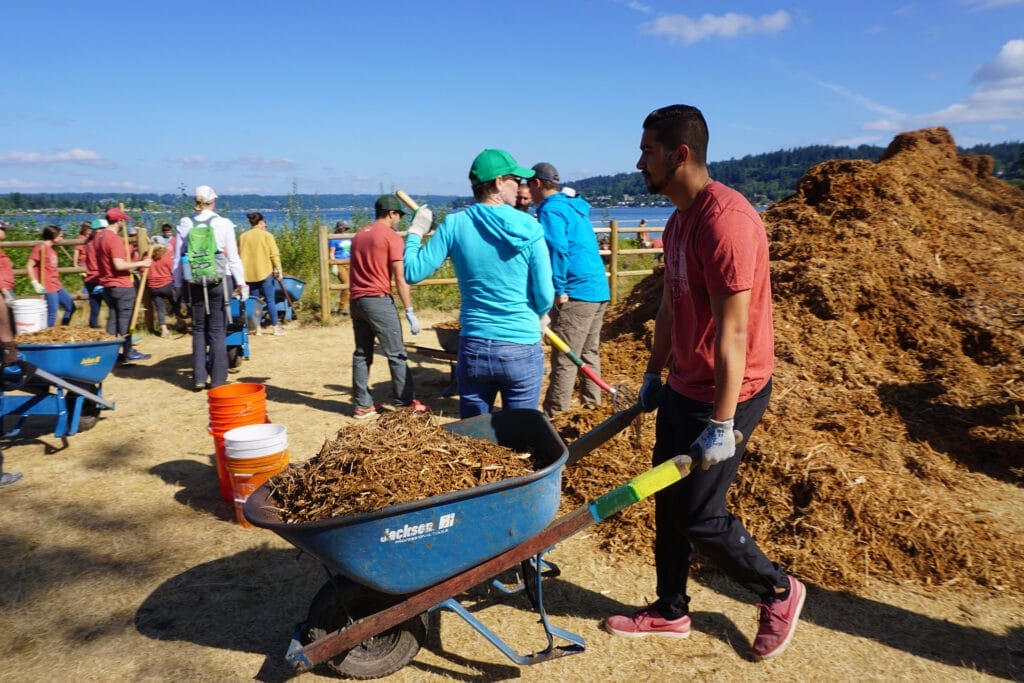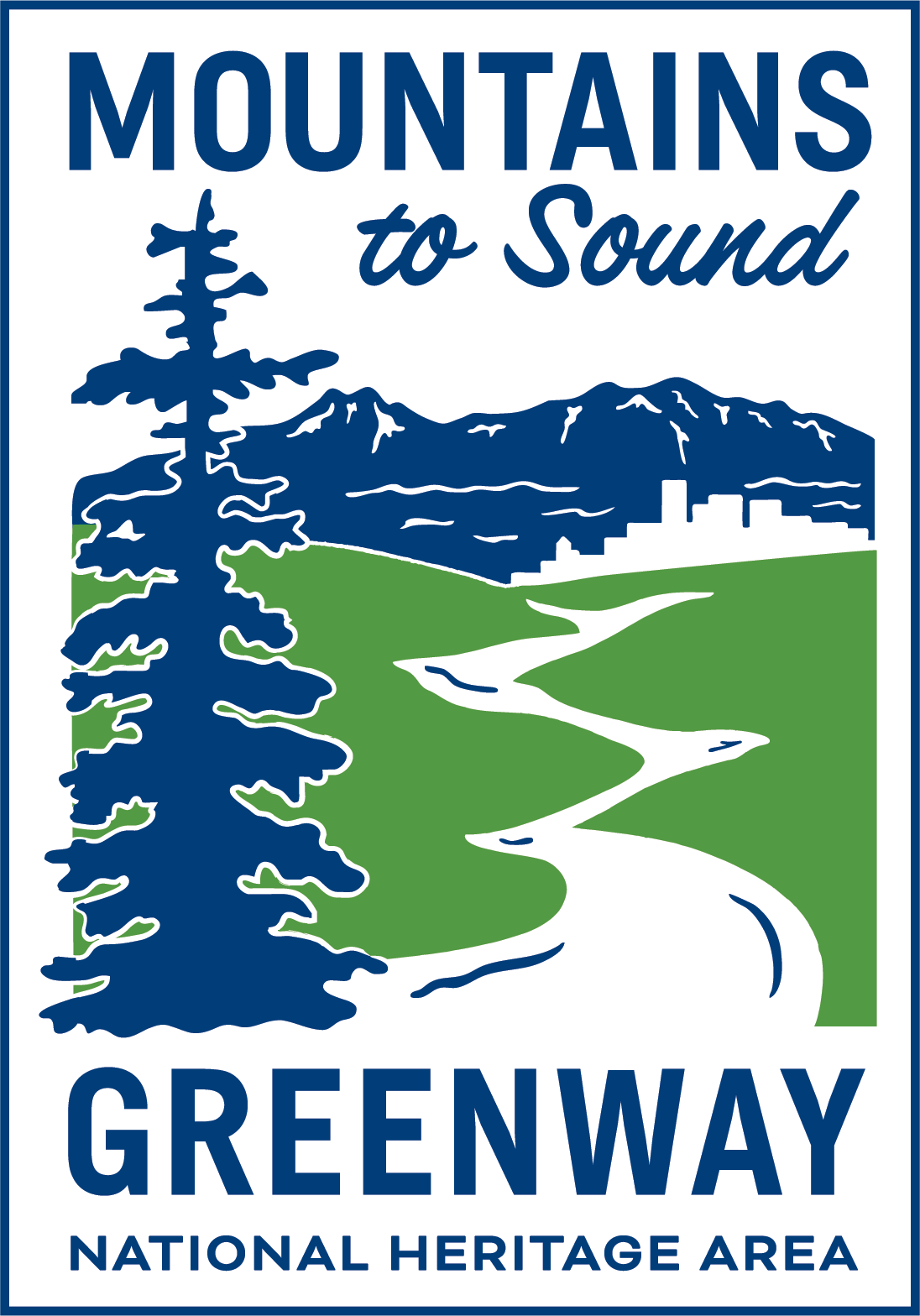Habitat restoration is the practice of improving degraded, damaged, or destroyed ecosystems in the environment through human intervention and action. This often enhances habitat for local wildlife like birds and salmon, increases carbon sequestration to combat climate change, and improves access for people.
Habitat restoration events are great for families and individuals (youth 13 years or under must be accompanied by an adult). Project sites are a five to 10-minute walk from a parking location, and occur at a variety of sites in the Mountains to Sound Greenway National Heritage Area. Most habitat restoration volunteer projects are in the greater Seattle area and the Snoqualmie Valley.
Habitat Restoration Happens Year-Round
The Greenway Trust undertakes a comprehensive approach to habitat restoration, working across seasons to nurture and protect natural ecosystems.
Throughout the entire year, volunteers engage in the crucial task of weeding non-native plants, nurturing young native saplings, mulching restoration sites to keep them weed-free, and by planting trees from our Native Plant Nursery which is home to 20,000 native trees and shrubs. This ongoing effort is essential for maintaining the health and biodiversity of restoration sites.
This holistic approach to habitat restoration spans the entire year, encompassing planting, potting, weeding, and mulching activities that work in harmony to preserve and enhance the Mountains to Sound Greenway National Heritage Area.


Organizing Plant Nursery (December – January)
Volunteers help rearrange numerous rows to accommodate new plants and help prepare for the potting season.

Potting (February – April)
Volunteers place yearling trees and shrubs into 2-gallon pots where they’ll grow for one to two seasons. Potting activities at the nursery also include potting up bare root plants (read more about these plants here) and organizing numerous rows of potted plants.

Weeding / “Grubbing” (May – August)
Volunteers remove noxious weeds from habitat restoration sites that outcompete for nutrients, or damage, the success of native plants in the area. The most common targets are Himalayan blackberry and English ivy, though there are many others. This is an essential, and ongoing, part of any habitat restoration project!

Planting (October – December)
Volunteers plant native shrubs and trees that come from the Greenway Trust’s Native Plant Nursery (and other nurseries). Read more about this process – From Seeds to Trees Across the Mountains to Sound Greenway. Planting project locations vary, and may include large open fields, city parks, and along rivers and creeks. Instruction on how to plant for long-term success is provided on site by event leaders.
Learn more about our tree planting progress and opportunities to get involved.

Mulching (All Year, Especially Spring/Summer)
Mulch is a mix of wood chips and organic materials that we use to spread on the ground in restoration sites to prevent the regrowth of noxious weed species. Mulch acts as a beneficial soil additive, like compost in a garden. Volunteers use pitch forks, hard rakes, wheelbarrows, and buckets to move mulch around a site.

